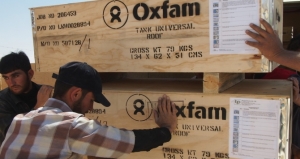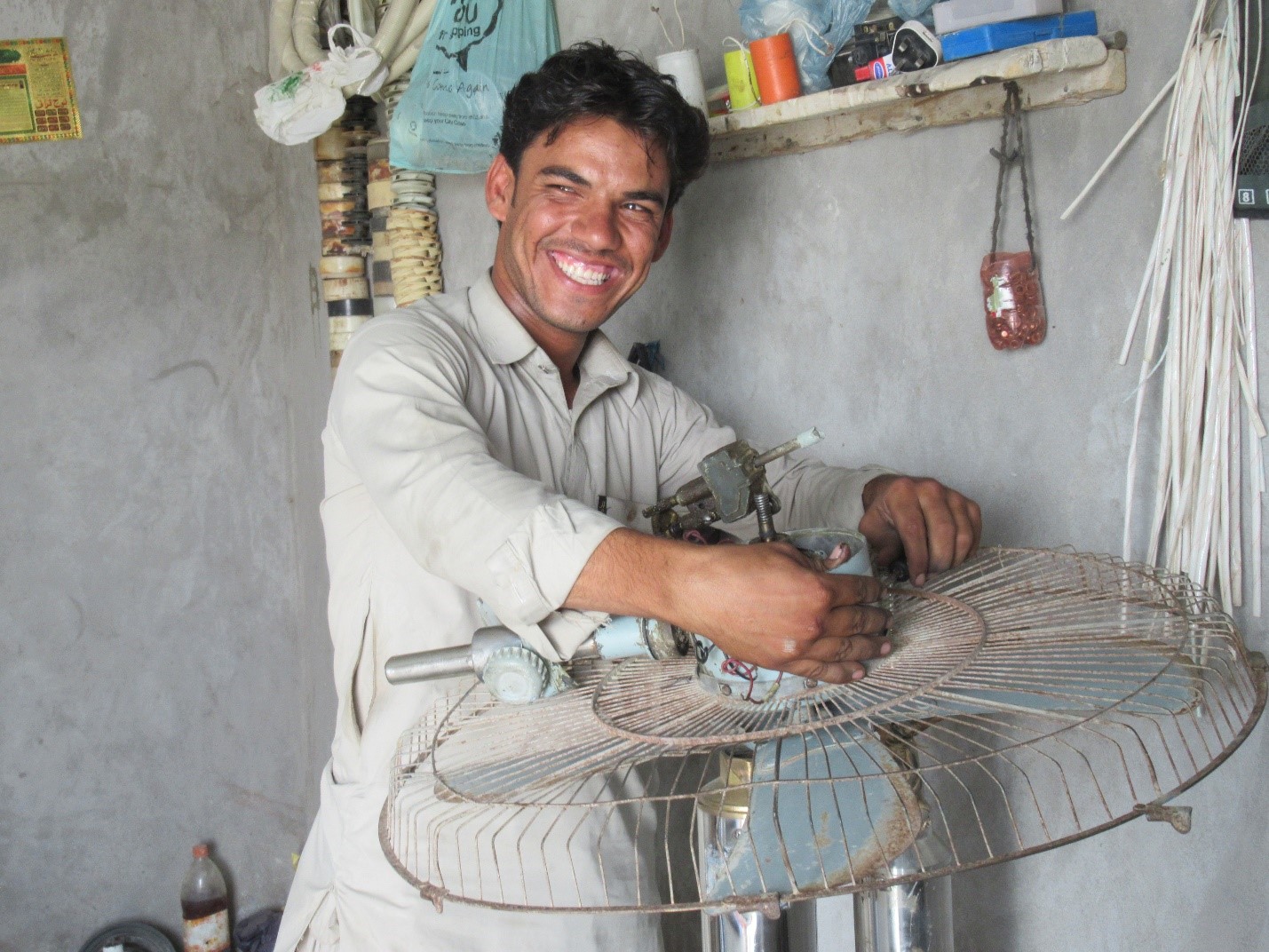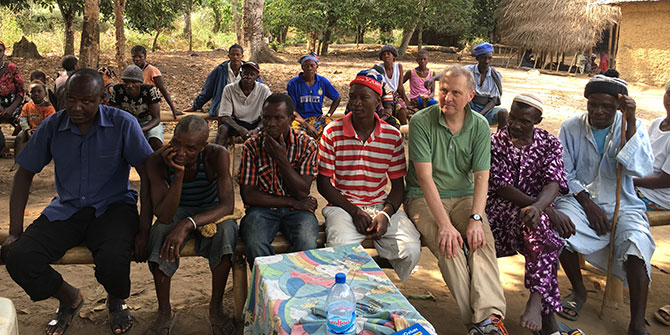18 months ago, Robert Wade found trade economists at UNCTAD to be wilfully sidestepping any mention of sustainability in discussions about the Sustainable Development Goals (SDGs). Now, Duncan Green attempts to shake off his own scepticism about the post-2015 SDG process, finding some light (if little sun) at the end of the tunnel.
(Originally posted on From Poverty to Power.)
 I spent a day in Madrid last week talking to Spanish aid wonks (it was cold and wet, in case you’re feeling jealous). One of the main topics of conversation was the post-2015 process, and it convinced me that I need to move on a bit from my previous rejection of the whole process as a waste of breath. We are where we are – there has been a huge investment from (some) political leaders, and (a lot of) global civil society in a big conversation about the ‘world we want’. What happens next?
I spent a day in Madrid last week talking to Spanish aid wonks (it was cold and wet, in case you’re feeling jealous). One of the main topics of conversation was the post-2015 process, and it convinced me that I need to move on a bit from my previous rejection of the whole process as a waste of breath. We are where we are – there has been a huge investment from (some) political leaders, and (a lot of) global civil society in a big conversation about the ‘world we want’. What happens next?
As Claire Melamed has argued, that is a positive in itself. OK, but what determines whether that big conversation leaves a legacy, and in ten years time is affecting how decision makers behave? The MDGs’ main impact was on the quantity and quality of aid, but aid is of declining importance in all but a shrinking pool of aid-dependent economies. What else have the SDGs got in the locker?
One way that the SDGs could remain relevant is by influencing global norms along, say, the lines of CEDAW, but I don’t think they are designed to achieve that – unlike UN Conventions, the SDGs have no process of ratification, followed by incorporation into national law.
Which leaves something more intangible – can the SDGs gain traction over the decisions and priorities of national governments, South and North? As a way of boiling all this down, maybe the research question should be – how could the SDGs help an official in Bihar who wants to tackle open defecation to get greater support for her work?

Some of the Spanish wonks wanted to meet the challenge head on – if Spain signs up to the SDGs, then campaigners should ask the government to set explicit targets and timetables for reducing inequality and a hundred other good things that are in the draft. Ain’t gonna happen – not in Spain, where government negotiators see the SDG negotiations as about ‘them’ not ‘us’, but non aid-dependent governments in developing countries are equally unlikely to sign up – why should they?
The alternative is a more softly softly approach, designing the process of monitoring and reporting to generate steadily increasing pressure on governments to go further than they would otherwise have done.
In 2012 my very crude answer on this was ‘league tables’ – pit India against Bangladesh and let civil society and media use local rivalry and shame to push for action. But how else can the SDGs be ‘converted into public policy’, as one speaker in Madrid put it? Factors could include:
Picking the right indicators: ones that can be collected and updated regularly, that mean something to normal people, which measure important stuff. (I’m not sure ‘yay, the Gini has fallen by 0.4% since last year’ passes either of the first two tests, by the way). Perhaps use perception indicators like those on corruption used by Transparency International – ‘does your government work in the interests of poor people?’ But the data geeks are all over the indicator discussion like a rash, so let’s move on.
How will governments be required to report on their performance against the SDGs? How regularly? To whom? Will other bodies (parliamentarians, civil society organizations, think tanks) be allowed to submit alternative reports? Will there be a real debate around the reports?
How will the post-2015 system (presumably the UN) report on progress – a diffuse global conference in New York every couple of years, or a nowhere-to-hide comparison of SDG heroes and zeroes that gets politicians’ attention (yes, including league tables)?
As for who could use such mechanisms, it is of course far wider than CSOs. Off the top of my head:
- Strengthening the hand of internal champions within states
- Parliamentarians
- International Bodies (UN, Bretton Woods, bilateral, regional organizations)
- International Markets (imagine if ratings agencies started marking countries down as greater credit risks for not tackling inequality!)
- Faith leaders
- Enlightened fractions of the private sector
- Sub-national governments – both as targets and pushing for action (eg, our state has the worst SDG stats in India – what are you going to do about it, Delhi?)
- Other opinion shapers: academics, media, judiciary
- Shifting public narratives – the power of good and bad examples to affect how people see the role of government, for example
- Shaping the views of future leaders – e.g. via universities.
Everyone always likes a research agenda, so as well as asking governments what actually influences their decisions, how about consulting these groups about what kind of mechanisms might make the SDGs relevant to them?
One option for an implementation mechanism might be that used by the Open Governance Partnership. When countries join the OGP, they commit to broad principles outlined in the Open Government Declaration. Once signed up to this overarching vision, countries develop their own two-year action plan with concrete open government reform commitments. That would domesticate the SDGs into something nationally owned and relevant, providing the basis for annual reporting and debate, which over time could shift norms, policies and practices faster than they would otherwise have done. That seems like a pretty desirable outcome and according to our lead SDGs wonk, Takumo Yamada, something along these lines is already happening in several countries (he mentioned Ghana, Mexico, Guatemala, Colombia and Denmark).
So don’t give up on the SDGs – they’re just getting interesting.

Update
This, from an excellent AidData post on the findings of their survey of developing country policy makers (which I reviewed last month – should have linked to it in this post, but forgot!)
‘The findings from the 2014 Reform Efforts Survey should give pause to those who are negotiating the soon-to-be-established Sustainable Development Goals. While a great deal of effort is currently being devoted to the identification of technically appropriate and politically feasible indicators and targets, UN negotiators would be wise to think long and hard about how the modalities of performance assessment that they choose may influence the incentives and behaviors of the governments they are monitoring and evaluating. The international community would serve itself well by listening carefully to the makers and shapers of policy in low- and middle-income countries.’
Related Posts
   |






it is difficult to be good, https://www.ulule.com/gokiace14/#/projects/followed but we must know that what is good is not necessarily good before.
its really good. thankyou
nice
very good